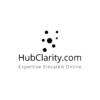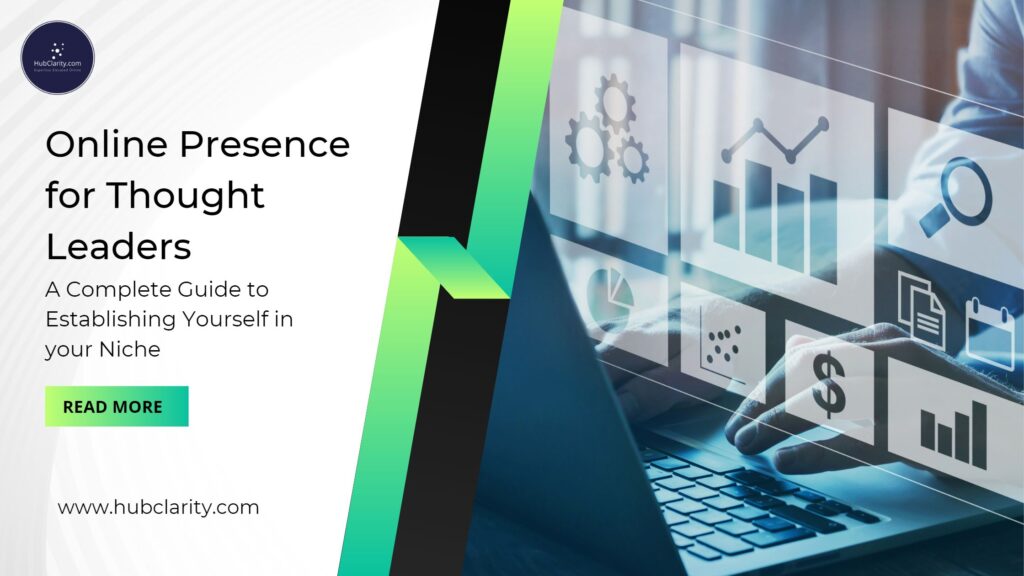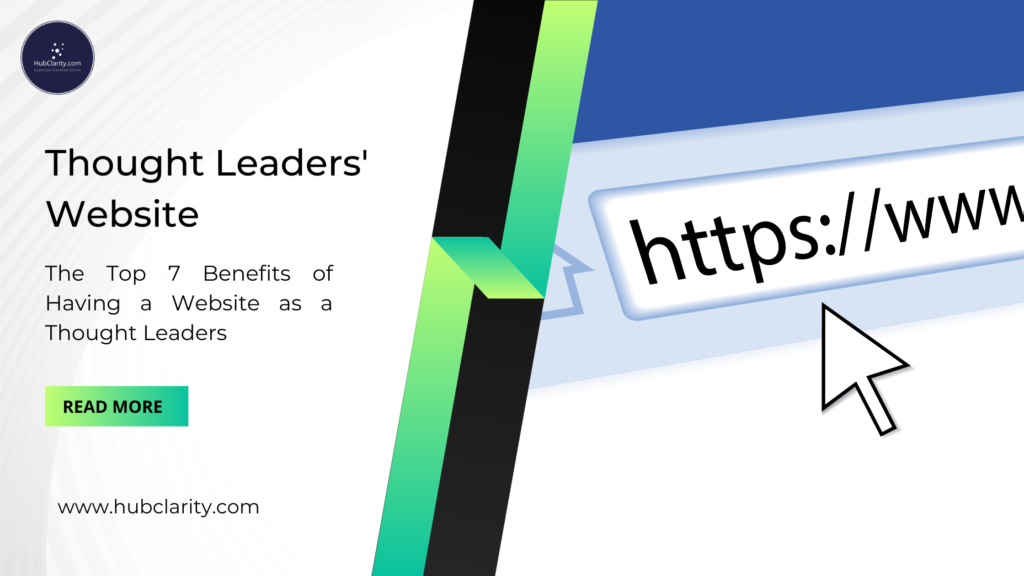Why Thought Leaders Should Own a Website: Control Over Your Online Presence
In the ever-evolving digital landscape, thought leadership is crucial for experts to share their insights, knowledge, and experience with the world. Establishing a strong online presence is essential, with thought leadership and content control playing a vital role in shaping one’s authority and influence. One effective way to exercise this control is by owning a website. This allows thought leaders to harness the power of content in a way that serves their goals and objectives. In this article, we delve into the various ways owning a website enables thought leaders to control their content and create a lasting impact on their target audience.
Content Creation and Curation
Freedom in content strategy
Owning a website provides thought leaders with the freedom to design their content strategy meticulously. They can choose the topics they want to cover, ensuring that they address the most pressing issues and questions in their field. They can also select formats that best suit their audience’s preferences and expertise, such as blog posts, podcasts, or videos.
Showcasing expertise and unique voice
By owning a website, thought leaders can establish a unique voice and build trust and credibility with their audience. This helps to strengthen their thought leadership and content control, making their content resonate with readers.
Retaining copyrights and avoiding restrictions
Having a website allows thought leaders to retain control over their content’s copyrights and avoid potential censorship or restrictions from third-party platforms. This ensures that their content remains accessible, true to their vision, and free from external interference.
Content Management and Organization
Flexibility in updates and revisions
A personal website gives thought leaders the flexibility to update, revise, and reorganize their content whenever necessary, ensuring that it remains relevant, accurate, and timely.
Archiving and cataloging for easy navigation
Owning a website also allows thought leaders to archive and catalog their content, creating a comprehensive knowledge base that is easy for their audience to navigate. This user-friendly organization helps to improve audience engagement and encourages readers to explore further, thus enhancing thought leaders’ influence.
Integrating multimedia resources
Thought leaders can integrate multimedia resources, such as videos, podcasts, and presentations, within their website. They can also cater to different learning styles and preferences, making their content accessible and appealing to a wider audience.
Search Engine Optimization (SEO) and Visibility
On-page and off-page SEO
By owning a website, thought leaders can manage both on-page and off-page SEO, enhancing their content’s visibility on search engines. They can optimize meta tags, headings, and keywords based on thorough research and analysis. They can also build backlinks and promote their content through various channels, such as social media and guest posting.
Enhanced content visibility
This focus on SEO contributes to thought leadership and content control, ensuring that thought leaders’ content reaches a wide audience and establishes their authority in their field.
Monitoring and analyzing performance
Moreover, thought leaders can monitor and analyze their content’s performance using advanced web analytics tools, such as Google Analytics and SEMrush. These tools provide valuable data insights and enable thought leaders to adapt their strategies accordingly. They also improve the effectiveness of their content and increase its reach.
Audience Engagement and Interaction
Encouraging user-generated content
A personal website enables thought leaders to encourage user-generated content through blog comments, discussions, and social media integration. This fosters a sense of community among their audience, provides valuable feedback, and promotes a healthy exchange of ideas and perspectives.
Direct communication with readers
Direct communication with readers is another benefit of owning a website. Thought leaders can use email newsletters and subscriptions to stay connected with their audience, share updates, and solicit feedback. They can also respond to comments and inquiries, addressing questions and concerns in a timely manner.
Content Monetization Strategies
Offering premium content
Owning a website opens up various monetization opportunities for thought leaders. They can offer premium content such as webinars, online courses, e-books, and whitepapers, adding value to their audience’s experience and generating income.
Advertising and affiliate marketing
Thought leaders can also engage in advertising and affiliate marketing by selecting relevant partners, promoting products or services that align with their values and expertise, and earning revenue through referrals and ads.
Sponsored content and collaborations
Sponsored content and collaborations with industry leaders can help thought leaders expand their influence, credibility, and income. By partnering with reputable organizations and individuals, thought leaders can tap into new networks, share their expertise with a broader audience, and leverage the credibility of established entities.
Security and Data Privacy
Robust security measures
Owning a website allows thought leaders to have better control over the security and data privacy of their content and user information. They can implement robust security measures, such as SSL certificates and regular backups, ensuring that their content and user data remain protected.
Transparent privacy policies
Thought leaders can also establish transparent privacy policies, assuring their audience that their information is handled responsibly and ethically. This reinforces the importance of thought leadership and content control in maintaining trust and credibility.
Long-term Benefits and Scalability
Adapting to changing trends
A personal website serves as a long-term investment for thought leaders, providing a platform that can grow and evolve with their careers. As their influence and audience expand, they can scale their website to accommodate new content formats, additional features, or a broader range of topics.
Accommodating professional growth
This flexibility enables thought leaders to adapt to changing trends, the audience’s needs, and their own professional growth. This further emphasizes the importance of thought leadership and content control in shaping their online presence.
Conclusion
In summary, owning a website empowers thought leaders to control their content in ways that enhance their credibility, visibility, audience engagement, monetization potential, and long-term growth. By investing in a personal website, thought leaders can assert content autonomy, allowing them to make the most of their expertise and insights. The value of thought leadership and content control cannot be overstated, as it forms the foundation of a strong and influential online presence that can endure and evolve over time.


